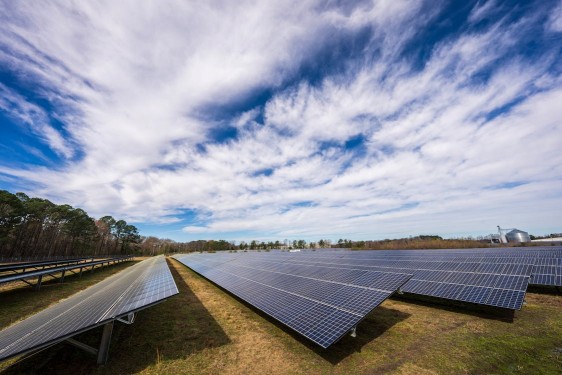Solar Power Grants and Funding in the UK 2025
Governments worldwide are in line with the agenda to de-carbonize their economies by 2050 and the the UK is no different in its commitment. Here, we will look at the Top 10 solar power grants and funding options in the UK that will help you switch to solar, be it in terms of residential or commercial solar power. The info on solar grants we’re presenting is especially significant, considering the drive to shift to solar as a major source of electric power generation has gained a lot of traction in the last two decades. A solar grant can surely go a long way in helping you adopt a more sustainable lifestyle.
So, without further ado, let’s look at the Top 10 Solar Power Grants, here in the UK .
Table of Contents
- Top 10 Solar Power Grants in the UK (2025)
- 1. Green Homes Grant
- 2. ECO4 Grants
- 3. Renewable Heat Incentive (RHI)
- 4. Solar Together Scheme
- 5. Home Energy Scotland Loan
- 6. The Energy Saving Trust Grant
- 7. Boiler Upgrade Scheme
- 8. Home Upgrade Grant
- 9. Public Sector Decarbonisation Scheme
- 10. Smart Export Guarantee (SEG)
- Final Thoughts
Top 10 Solar Power Grants in the UK (2025)
1. Green Homes Grant— Local Authority Delivery Scheme
The program is part of the broader Green Homes Grant, with a targeted discretion for helping low-income and at-risk homeowners reduce their energy use solar panel installations. This means aid in the form of a grant from the local authority councils for energy efficiency improvements for homeowners and landlords.
Eligibility:
- A base level is usually to be found commonly in working-class families, or normal detached houses with an EPC rating describing their poor ideas.
- The person who wants to avail of this scheme should have a house of their own, this scheme cannot be availed for newly-built houses.
- Grant Amount:
-Eligible households can receive grants for up to two-thirds of the cost of home improvements (capped at £10,000).
Application Form: You may check out the application process and other required information at https://www.gov.uk/guidance/apply-for-the-green-homes-grant-scheme
2. The Energy Company Obligation (ECO4)
ECO is a government company that tends to operate around reducing global warming and climate change by helping people with grants to improve their homes which include–solar panels, Boiler upgrades, Central heating, Loft insulation, etc.,
Eligibility:
- A Home Owner in the UK receiving income benefits
- Health Conditions such as Cardiovascular, Respiratory, Immunosuppression, etc.,
- Current EPC(Energy Performance Certificate) Rating of E,F, or G.
- Household income should be less than £31,000
Amount:
- Eco4 looks to cover as many energy solutions for a house as possible and the government funding cap is at £50,000
Application:
- Find more details about the application process and check your eligibility at the official website for the Eco4 scheme.
3. Renewable Heat Incentive (RHI)
- The Renewable Heat Incentive (RHI) needs no introduction — it is one of the most popular initiatives that allows those with these income-boosting services to cut down on their astronomical power bills through incentives for switching to renewable heating technologies. It is regulated by the Government of the UK through Ofgem.
Eligibility:
- Open to home farmers, personal landlords, social landlords and individuals building their own homes can take advantage of its support.
Grant Amount:
- The eligible parties would receive quarterly payments proportional to the amount of renewable heat energy produced by their system.
Application:
- The scheme has now closed and been replaced by the Boiler Upgrade Scheme(BUS) with similar provisions of incentives for the replacement of fossil fuel based heating systems with heat pumps or biomass solutions. Check your eligibility on the official website- https://www.gov.uk/apply-boiler-upgrade-scheme
4. Solar Together
This scheme entails group buying of solar PV panels and battery storage systems to avail of cost-saving benefits. This can fetch you benefits like a high-quality installation at lower prices, an easy and prompt installation process, and savings varying between 10-25%
Eligibility:
- You should be a homeowner or renter in a participating council area in the UK.
Amount:
- Rather than a grant amount this scheme leads to commendable savings in the installation, maintenance, etc., costs through group installations.
Application:
- You can check the application process and other details at https://solartogether.co.uk/landing
5. Home Energy Scotland Loan
This scheme, redeemable in Scotland can allow any homeowner in the country who wants a solar panel installation with an interest-free loan for their home energy efficiency upgrade through this government-endorsed scheme, which is delivered by the Energy Saving Trust and funded by the Scottish Government. This scheme also entails advice about energy efficiency, reducing energy bills, etc.,
Eligibility:
- You should be a homeowner or a private landowner in Scotland.
Amount:
-You could borrow between £1000 and £17,500 — but with a limit of up to only £5k for solar panels if you use any part of the loan amount(interest-free) on renewable energy technologies.
Application:
- You can visit the website of Home Energy Scotland for further information on the application process and eligibility, etc.,
6. The Energy Saving Trust Grant
The Energy Saving Trust Grant offers a wide range of grants and loans to help pay for the installation of alternative energies such as solar power, and other ways to save energy. The scheme is supported by the UK Government, and run with support from funding partners such as the Energy Saving Trust.
Eligibility:
–This grant is for homeowners, private landlords, and small businesses(SME scheme)
Amount:
- The amount is dependent on the type of grant you avail, the Energy Saving Trust provides a wide range of grants for different purposes.
Application:
-Application forms are available on the website of the Energy Saving Trust.
7. Boiler Upgrade Scheme(BUS)-2022
Launched in 2022, the Boiler Upgrade Scheme is a Government grant for people in England and Wales to install more energy-efficient heat pumps or if required, a biomass boiler. Since the amount of the grant(given below) differs depending on the type of heat system you may install, professional advice on the type that meets your requirements is also included in the scheme.
Eligibility:
- Home owners replacing their current heating system with a renewable heat one in England and Wales.
Grant Amount:
The Grant amount differs based on the type of Heat System you opt for
- Air Source Heat Pump- Up to £7,500 in cost and installation
- Ground Source and Water Source Heat Pumps- Up to £7,500 in cost and installation
- Biomass Boiler- Up to £5,000 for cost and installation.
Application:
- You can visit the website(a part of the Energy Saving Trust Schemes) for further details.
8. Home Upgrade Grant
The Second Phase of the Home Upgrade Grant will include providing low-carbon, energy-efficient heating and renewable solutions for households with an emphasis on the installation of solar panels in the new phase. The eligibility will be decided based on a home survey arranged by the local authorities.
Eligibility:
- The Scheme will run till March 2025
- Low-Income Households(with an annual income of £ 39,000 or less, before housing cost and bills deduction.
- Off the gas grid
- EPC rating between D and G
- The scheme has been selected for 45 regions, therefore, you need to be living in a select council area.
Grant Amount:
- The residents of the select area may receive up to £ 10,000 while switching to renewable energy solutions.
Application:
- You can check the application process and other details at https://www.gov.uk/government/publications/home-upgrade-grant-phase-2
9. Public Sector Decarbonisation Scheme(PSDS):
The fourth phase of the Public Sector Decarbonisation Scheme has been announced by the Department for Energy Security and Net Zero( DESNZ). It aims to cut carbon emissions from public sector buildings by 75% by 2037. The scheme is headed by Salix Finance and it targets public sector solar installations only.
Eligibility:
- Supply of solar panels to public sector bodies across England, and other reserved public sector areas across the UK.
Grant Amount:
- Dependent on the assessment by local authorities with regional variations.
Application:
- You can check out the Government of UK’s website for further information as well as contact your local authority for more information on the PSDS scheme, phase-4.
10.. Smart Export Guarantee (SEG)
If we had to single out the best solar surplus scheme initiated by the UK government, it would be the Smart Export Guarantee, or SEG for short which perfectly refers to a thin green line between large energy projects.
Coming to effect in January 2020, this scheme provides small-scale low carbon electricity generators, particularly solar PV panels to receive payments by exporting any surplus energy they generate, back to the power grid. It is mandatory for all licensed suppliers of energy to offer an export tariff to their customers. As is it not a direct government grant, there might be some variations in the prices offered by different companies for every kWh of energy that is sent back to the power grid.
Eligibility:
- All homeowners with regular solar panel installations(up to 5MW of capacity)
- The house must have a ‘smart meter’ to measure the export.
- Some suppliers also offer prices for the energy exported from solar batteries.
Amount:
- The amount offered per kWh differs from supplier to supplier, however the average rate varies between 1p and 20p per kWh.
Application:
- To avail the benefits of the scheme, you need to be a SEG Generator, for which you will need to connect with an SEG Licensee(a supplier who is authorised to offer an SEG Tariff) and apply.
- You need to make sure that you have an energy-efficient solar PV system fitted at your residence/business/building.
- You can read more on the SEG on the
Final Thoughts:
2025 is the best time for investment in solar energy that has ever hit the UK, with a wealth of grants and incentives available. From the Smart Export Guarantee (SEG) down to community groups, these schemes are designed to support homeowners, business owners, and public sector bodies in switching to solar. They all have different benefits, such as lowering the installation cost– Eco4 can help you get free solar panels, more or less while those like Home Energy Scotland, can provide long-term financial support.
Get moving and opt for the scheme that best suits your needs!
Frequently Asked Questions
In terms of energy efficiency, solar panels are better than solar shingles. In terms of appearance, solar shingles have an edge over solar panels with their sleek and sophisticated look.
Solar panels and Shingles can last 25-30 years. However, it varies from company to company .
A solar shingle, also known as solar roof tiles, are composed of semiconducting material and work to harness solar energy and convert it into electricity. It is an advanced roofing solution.
A solar panel is made up of solar cells, which are typically monocrystalline or polycrystalline, whereas solar tiles are made of Copper Indium Gallium Selenide. The function of solar panels is energy production, whereas solar tiles were designed to be an alternative roofing option while producing electricity.




